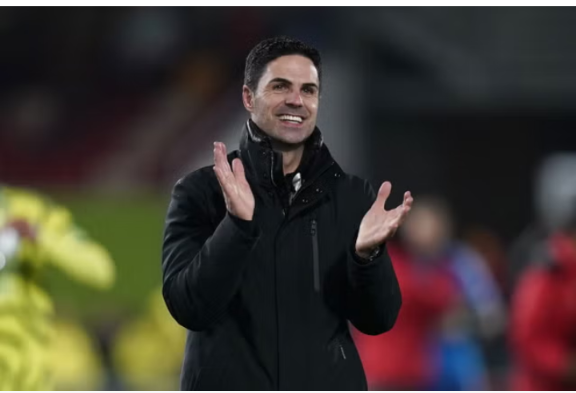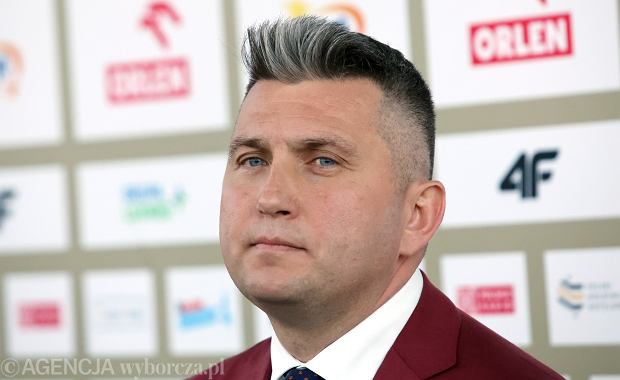Michael Wolff: ‘Trump is not like you or me, he is crazy and that’s frightening. All bets are off’
The political author’s latest exposé goes inside the US election – and says we’ll still be working out what happened 100 years from now On Feb 25, days before Michael Wolff’s latest book about Donald Trump, All or Nothing, was published, the president took time out of his schedule to endorse it in his unique…
The political author’s latest exposé goes inside the US election – and says we’ll still be working out what happened 100 years from now
On Feb 25, days before Michael Wolff’s latest book about Donald Trump, All or Nothing, was published, the president took time out of his schedule to endorse it in his unique style.
“So-called ‘Author’ Michael Wolff’s new book is a total FAKE JOB, just like the other JUNK he wrote,” the president posted on Truth Social, his social media platform. “[…] His other books about me have been discredited, as this one will be also. I am one who believes in commenting about FAKE NEWS, or made up stories, even if you have to ‘punch low,’ and shouldn’t be wasting the time required to do so.
“Wolff says he has sources, but he doesn’t have them, it’s a LIE, as is the case with many so-called ‘journalists,’” Trump added. “If he has sources, let them be revealed. Watch, it will never happen. He is FAKE NEWS, a total LOSER, and no one should waste their time or money in buying this boring and obviously fictitious book!”
It is the kind of publicity money cannot buy, as Wolff’s contacts in government understand very well.
“When Trump posted that long post about my perfidiousness, as soon as he posted it, someone in the White House sent me the link,” Wolff recalls, “with the message ‘you’re welcome!’”
Chaotic, furious and knowing: it is the sort of vignette into Trumpian life that Wolff delights in. Besides, he is used to the president’s displeasure. All Or Nothing, the first major book about the re-election, uses anonymous sources inside the campaign to tell the behind-the-scenes story. It is Wolff’s fourth book about Trump, and it’s as kinetic and entertaining as all of them.
Before the publication of the first, Fire and Fury, in 2018, Trump threatened to sue for libel but refuted nothing specific. The publicity helped to send the book to the top of the New York Times bestseller list. The sequels, Siege (2019) and Landslide (2021), confirmed the pattern: Trump and his allies rail against the books but take no substantive action, the books sell well, and the same sources happily speak to Wolff again next time around. All or Nothing is just the same.
Copies of Fire and Fury in a bookshop in London
Wolff became a household name in 2018 after the publication of his first Trump book, Fire and Fury Credit: Getty
“I go on saying the worst possible things I can say about him, and he goes on,” Wolff says. “The circle is unbroken. Everybody asks ‘why do they keep talking to you?’ and I’m not sure I know the answer, except it is a long habit at this point. After 10 years, I’m pretty much friends with a lot of these people. And there is something unique about people in the Trump experience. As much as they are part of it, it is so strange and anomalous that they are clear-eyed about it. No one’s saying this is normal.”
In his own way, Wolff, too, has become part of the circus. He recalls a moment during the campaign when he came face-to-face with the president. “I was in Des Moines staying in the same hotel as the Trump people,” he says. “Trump comes through [the lobby] and he stops. Everyone’s poised for him to say something, but all he does is point at me and say ‘I made that guy rich’.”
We meet for lunch at Michael’s (his suggestion; no relation), a restaurant in midtown Manhattan whose Google listing describes it as a “stylish, art-adorned Californian eatery frequented by high-profile media personalities”. Wolff has been coming here for years. “That’s Rupert Murdoch’s banker,” he says, pointing out a grey-haired man. “And that’s the man who ran the company that owned New York magazine. And that’s Jay McInerney, who wrote Bright Lights, Big City.” It might be 1990, were it not for the fact that two salads and a Coke comes to $150.
In a soft brown sports jacket and loafers, the urbane Wolff, 71, fits right in. He is as much a fixture of this New York milieu as any of the others he points out. Before he became the chronicler of Trump’s eccentric court, Wolff was one of the city’s best-known journalists, famous for his acid columns for New York magazine and Vanity Fair and as the author of books about his foray into the dot-com bubble and Rupert Murdoch. But he had to wait nearly 40 years for the subject he will surely be remembered for: the presidency of Donald Trump.
Michael Wolff
Credit: Dan Callister
“It’s surreal but it’s an incredible f–king story,” he says. “It’s obviously the story of our time. It overshadows every other story. No matter what happens and no matter how this ends, 100 years from now, we will still be trying to figure this out.”
In the days before we met, the news has been dominated by two stories. First, the extraordinary reports that the editor-in-chief of The Atlantic, Jeffrey Goldberg, was inadvertently added to a group on messaging app Signal in which members of the current US administration, including vice president JD Vance, defence secretary Pete Hegseth and national security advisor Mike Waltz, planned an air raid on Houthis in Yemen.
“These people are utter incompetents,” Wolff says. “Generously, you might say they are arrogant enough to think they don’t have to conform to rules and regulations because they see themselves as part of the Trump government, which is separate from other ways of governing, so they don’t have security measures. But I think it’s just rank, bloody incompetence.
“As you’re seeing with [the Signal app story], this is a gang that can’t shoot straight,” Wolff adds. “They have no idea what they’re doing. That has always been the case around Donald Trump, of one person more incompetent than the next. Why should you be intimidated by these people? And yet it’s not only law companies, it’s universities, it’s the entire tech industry: capitulation.”
The president’s assault on the legal profession has been the week’s other theme. The mammoth New York firm Paul, Weiss has capitulated to Trump by offering $40 million (£31 million) in free legal services in exchange for not being targeted by an executive order.
“Trump’s obsessed with lawyers,” Wolff says. “They are always top of mind: what they’ve done, what they haven’t done, how they’re f–king him over, how he’s going to f–k them over.” Lawyers are a recurring theme of All or Nothing, which, as the title indicates, casts Trump’s re-election campaign as offering the establishment – and voters – a clear choice: put him in jail for one of his several criminal acts, or put him back in the White House.
“It’s always existential with Trump,” he says. “Four criminal indictments would have put any politician out of business. His proposition was always ‘I’ll go to jail or to the White House’. There was nowhere in between.” Lawyers, as much as voters, are the instruments of Trump’s damnation and salvation, although Wolff says the Democrats must accept a large share of the blame too:
“Donald Trump is an anomaly and, in his own way, a juggernaut with this feeling of inevitability. But this is only because the Democrats have been so lame and unable to rise to the occasion. Successively from Hillary to Joe Biden. Partly it’s because they’ve been fat and happy and in charge and have grown rich off the system.”
Despite the shocking speed of legislation and executive orders during Trump’s second term, Wolff says it is a mistake to see any kind of coherent strategy. “There’s no legislative agenda,” he says. “It’s just a series of pronouncements and executive orders. As soon as someone else becomes the president, you just reverse all of this.” Instead, Wolff believes Trump is driven by something more primal: a need for drama.
“The main thing you have to understand about Trump is he was the star of a reality TV show for 11 years,” he says. “He knows how to keep the attention of the public: it’s conflict, conflict, conflict. The problem is that the conflict has to keep ramping up. You can’t have the same level of conflict. It has to get bigger and bigger, which, if you follow it through, means invading Greenland. Or Canada.”
Inevitably, no sooner have Wolff and I spoken than Trump instigates an even more chaotic news cycle by imposing widespread import tariffs, which rock the world’s stock markets.
tmg.video.placeholder.alt MgEQLr2Crwc
“The most remarkable aspect of the tariffs thing is that Trump has got the whole world talking about tariffs,” Wolff says by phone a few days later. “We’ve gone from an archaic detail of trade policy to the most dramatic event in the world. The numbers make no sense. They came off the top of somebody’s head. But everybody’s forced to say ‘what does this mean?’
“How he can turn tariffs into a dramatic device is total Trump genius. It is Trump as the reality show master.”
Another recurring theme of All or Nothing is the president’s difficulty in receiving information not conveyed to him by TV news.
Arguably the most memorable character in the book is Trump’s assistant Natalie Harp, a 34-year-old former journalist whose devotion to her president is so unnerving the Secret Service deems her a “potential danger”. One of her tasks is to follow Trump around with a printer to print out things he needs to read, a role that gives her disproportionate importance in his camp.
Trump with Natalie Harp
According to Wolff’s book, Trump’s assistant Natalie Harp write letters of adoration to Mr Trump Credit: Getty
Wolff says this “profound inability to listen” is what led to the ugly contretemps with Volodymyr Zelensky in the Oval Office last month. “It’s very hard for Trump to absorb information,” he says. “The way to compensate for that is to block it. When people try to force information on him, he really reacts, physically. I saw Zelensky trying to explain and justify and debate and I thought ‘oh f–k’.”
“Trump is not like you or me or anyone else we know. He is a crazy person. You can’t predict what a crazy man will do, and that’s frightening. All bets are off.”
If what drives the president remains mysterious, the other big question is what comes next. Days before the interview Steve Bannon, Trump’s former chief advisor, mooted that Maga officials are “looking into” ways Trump might stay on for a third term, despite it being forbidden by the constitution. Wolff is not worried about Bannon, who is “always full of baloney”, but concedes he can imagine a worst-case scenario in which Trump investigates elections and “finds out that things he has speciously said about elections are true” and says “we have to suspend all elections until we sort this out”. What happens then?
But it is unlikely. More probable, he says, is that this era of American history concludes with Trump’s death. “It will end because Donald Trump will die,” he says. “He’s 78 years old, it’s safe to say he will die. JD Vance is not going to take over. No one will. Maga as a movement can go on, but it will go on as any other kind of political movement among many. Without Trump there’s not that velocity, personality, that thing no one can get their heads around.”
He is especially scathing about Vance, whom some have touted as the heir to Trump’s Maga base. “During the campaign it was very clear Vance thought he was the smartest person in the room. A corollary to that was he thought Trump was a moron. We saw a public glimpse of that in that Hegseth [Signal] chat. Vance is an extremely conventional political wannabe. But the Trump thing is not inheritable.”
Wolff is distinctly unimpressed by JD Vance
Wolff is distinctly unimpressed by JD Vance Credit: Will Oliver/EPA-EFE/Shutterstock
One memorable moment in the book is when Rupert Murdoch comes crawling back to Trump’s camp, combining two of Wolff’s major subjects. The nonagenarian billionaire had initially supported Trump’s rival, Ron DeSantis, and previously worried that Trump was going “increasingly mad” in his first term. Before Trump took over Michael Wolff’s life, he was best known as a Murdoch whisperer, having written a biography, The Man Who Owns the News, based on more than 50 hours of interviews with Murdoch and expensive access to his inner circle.
In December, a Nevada commissioner ruled that Rupert and his son Lachlan could not amend the “unbreakable trust” Murdoch had set up to provide equal controlling shares in his empire to his four eldest children. The decision seemingly drew a line under one of the most acrimonious and high-profile succession battles in world business.
“The hearing over the will was preposterous,” Wolff says. “I assume the strategy was that Lachlan had no options and the only option was to create one through litigation, tire [his siblings] out and make a deal. But they all have $2 billion, so that’s a lot of lawyers.” As with Trump, he thinks the buck stops when Rupert Murdoch dies.
“When Rupert dies, that’s the end of the whole business,” he says. “Clearly Fox [News] doesn’t survive in its current form. I think they probably sell it. Maybe Lachlan takes Australia. But the blood is so bad now that they can’t come back.”
Wolff’s habit of irritating the rich and powerful has come at a cost. In 2009, after his Murdoch book came out, he suddenly found he was the subject rather than the reporter. At the time he was still married to Alison Anthoine, a lawyer, with whom he had two children, but had begun a relationship with Victoria Floethe, a Vanity Fair journalist. Suddenly, his private life was splashed all over the notorious Page Six of the Murdoch-owned New York Post.
Wolff with wife Victoria Floethe in 2018
Wolff with wife Victoria Floethe in 2018 Credit: Patrick McMullan
“The NY Post broke that story because Murdoch was pissed at me,” he says. “That was terrible. It was a genuinely shocking moment in my life. It was pure revenge. My daughter was very angry. She said you have to make this stop. She said: ‘You have all those hours of Rupert on tape. Call and tell them you’re going to make them public.’” He did, and the stories stopped. He says he will release the tapes when Murdoch dies.
Trump and his vicious aides are not the only people to have questioned Wolff’s journalistic integrity. After Fire and Fury came out, several prominent figures quoted in the book, including Anna Wintour and Tony Blair, denied quotes and scenes ascribed to them. Wolff claimed to have been present for a meeting between Blair and Jared Kushner, Trump’s son-in-law and Middle East tsar in his first term. According to Wolff, Blair angled for a role and warned that British intelligence might have been spying on Trump before his election. Blair claimed the story was “complete fabrication”.
“It’s extraordinary what people will disavow,” Wolff says. “Tony Blair went to suck up to the Trump people and tell them things he shouldn’t have told them. I was there, I’m sitting in the West Wing and hearing Tony Blair. It’s embarrassing, suddenly, for him to be a suck-up to Donald Trump. People will disavow anything if they have a pretext to disavow it. They are completely shameless liars. They’ll lie about anything. I can only write what I see and what I know. Whatever happens be damned. I don’t care.”
Wolff is still with Floethe; they have two children similar ages to his grandchildren. Home is mainly in the Hamptons, in a house bought with the proceeds from Fire and Fury. Trump might have been crude when he singled Wolff out in the hotel in Des Moines, but he was not altogether wrong.
Michael Wolff
After every book, I’ve said I’m not going to write another book. But suddenly, there you are, writing another book’ Credit: Dan Callister
“After every book, I’ve said I’m not going to write another book, and I don’t want to,” he says. “But suddenly there you are, writing another book.
“With this book, I was writing it in real time. I started it in the spring of 2022 when it started to be clear what was going to happen. I thought ‘oh, here we go again’. For a while it worried me that I couldn’t write the story without knowing how it ends, but at some point I thought: if he loses you can say ‘of course he’s going to lose, it’s all here’. But if he wins you could say exactly the same thing and say ‘of course he’s going to win’.
“That’s the poetry of Donald Trump: everything he does contains the seeds of absolute catastrophe or totally inexplicable success.”
However the Trump presidency plays out, Wolff will be there, taking down the first draft of history from people who will deny ever having spoken to him.
All or Nothing: How Donald Trump Recaptured America by Michael Wolff is published by The Bridge Street Press (£25). Click here to order a copy






